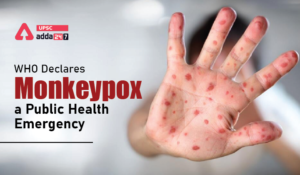WHO Declares Monkeypox a Public Health Emergency
Monkeypox a Public Health Emergency- Relevance for UPSC Exam GS Paper 2: Governance, Administration and Challenges- Issues relating to development and management of Social Sector/Services relating to Health, Education, Human Resources. Monkeypox a Public Health Emergency in News Recently, the World Health Organisation (WHO) sounded its highest level of alarm for Monkeypox, declaring it a … Continue reading WHO Declares Monkeypox a Public Health Emergency
